Which Of The Following Is An Achieved Status

Imagine a bustling marketplace. A young woman, barely out of her teens, skillfully negotiates prices with a seasoned vendor, her eyes sharp and confident. A man, his hands calloused but steady, meticulously crafts intricate designs on a wooden sculpture, his brow furrowed in concentration. These are not scenes inherited, but stories built, brick by painstaking brick.
The question of what constitutes an achieved status often arises when we consider the roles people play in society. It’s a status earned through effort, skill, or choice, a stark contrast to those assigned at birth. Understanding the distinction is crucial for grasping social mobility and the dynamics of social stratification. This article explores achieved status, delving into its definition, examples, and significance in shaping individual lives and societal structures.
Understanding Status: A Sociological Foundation
Sociology defines status as a position a person holds within a social system. It dictates how individuals relate to each other and influences their rights and obligations.
Statuses can be categorized as either ascribed or achieved.
Ascribed status is assigned at birth or involuntarily acquired later in life. Examples include race, gender, ethnicity, and family background. These are traits individuals are born into or acquire regardless of their own choices.
Achieved Status: The Result of Effort and Choice
Achieved status, conversely, is attained through an individual’s own efforts, abilities, or choices. It reflects what a person *becomes*, rather than what they *are born* into.
This type of status is dynamic and fluid. It can change over time, reflecting personal growth, career progression, or lifestyle choices.
Consider a scenario where someone begins as an entry-level employee and rises to become a CEO. The CEO position is an example of achieved status.
Examples of Achieved Status: Climbing the Social Ladder
Numerous examples highlight the concept of achieved status in various spheres of life.
Education: Earning a degree, diploma, or certification represents an achieved status. It reflects years of study, dedication, and intellectual growth.
Occupation: A doctor, lawyer, teacher, or engineer holds a status achieved through rigorous training and professional competence. Their position in society is directly related to their skillset.
Marital Status: Becoming married or divorced is also considered an achieved status. It reflects a conscious choice to enter or exit a legally recognized union.
Athletic Achievements: Winning an Olympic medal, setting a world record, or becoming a professional athlete are all examples of achieved status. These accolades reflect intense physical training, talent, and perseverance.
Criminal Status: Unfortunately, this can also represent an example of Achieved status. While negative, it represents the act of committing a crime that carries a legal label, "criminal".
The Significance of Achieved Status: Social Mobility and Opportunity
Achieved status is fundamental to the concept of social mobility. It allows individuals to transcend the limitations of their ascribed status and improve their social standing.
A society that values achieved status promotes meritocracy. In these societies, opportunities are based on talent and hard work, rather than birthright or privilege.
However, the extent to which achieved status influences social mobility varies across different societies. Socioeconomic factors, access to education, and systemic inequalities can impact an individual’s ability to achieve desired statuses.
For example, individuals from disadvantaged backgrounds may face significant barriers to accessing quality education or securing well-paying jobs, limiting their ability to achieve higher social status.
It is important to acknowledge that the interplay between ascribed and achieved status is complex. Ascribed statuses can influence the opportunities available to individuals and, consequently, their ability to achieve desired statuses.
Navigating Ascribed and Achieved Status: A Delicate Balance
In reality, ascribed and achieved statuses often intersect and influence each other. An individual's race or socioeconomic background, ascribed at birth, can significantly affect their access to education and employment opportunities, thereby impacting their ability to achieve desired social positions.
Similarly, gender roles and expectations, though changing, can still impact career choices and advancement opportunities for both men and women, subtly shaping their achievable statuses. Understanding these interactions helps to foster a more equitable and inclusive society.
Efforts to promote equal opportunities, such as affirmative action policies and scholarship programs, aim to mitigate the influence of ascribed status and level the playing field, enabling individuals to achieve statuses based on their merit and effort.
Conclusion: The Pursuit of Status and Societal Progress
Achieved status is more than just a sociological concept. It's a testament to human potential, the power of individual agency, and the possibility of upward mobility.
It reflects our collective belief that hard work, skill, and determination can lead to a better life. Recognizing the importance of achieved status helps us create societies that value merit, promote opportunity, and empower individuals to reach their full potential.
As we reflect on the complex interplay between ascribed and achieved statuses, we are reminded that progress towards a truly equitable society requires continuous effort. Investing in education, dismantling systemic barriers, and promoting inclusivity are crucial steps in creating a world where everyone has the chance to achieve their dreams and contribute their unique talents to the betterment of society.
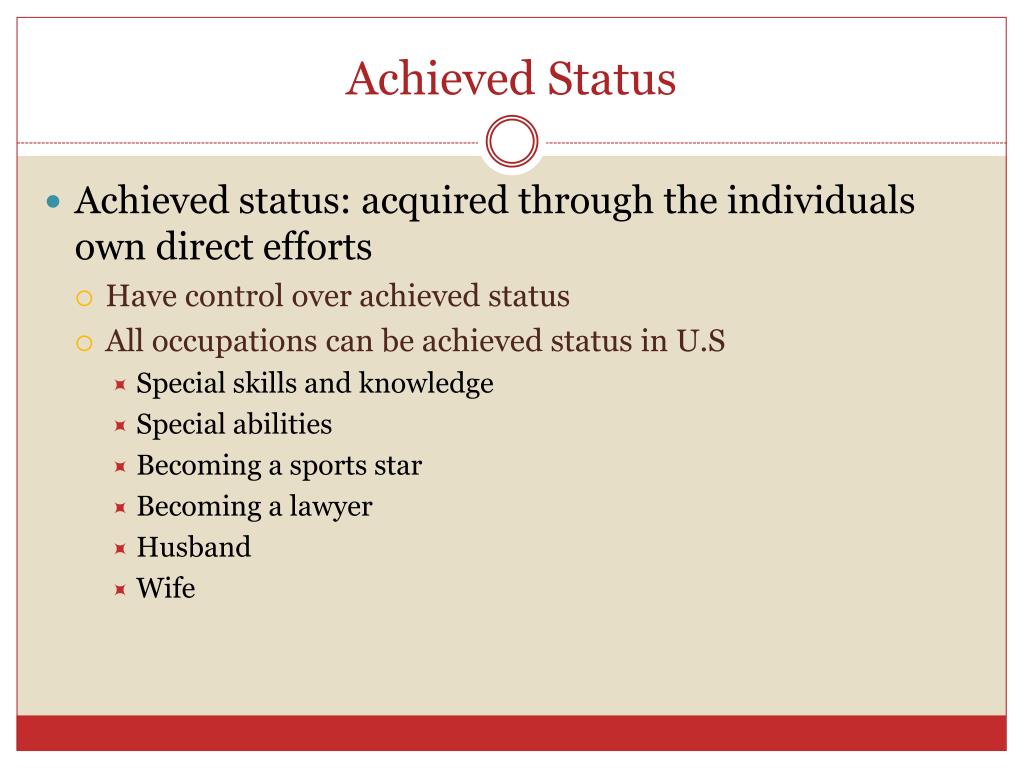


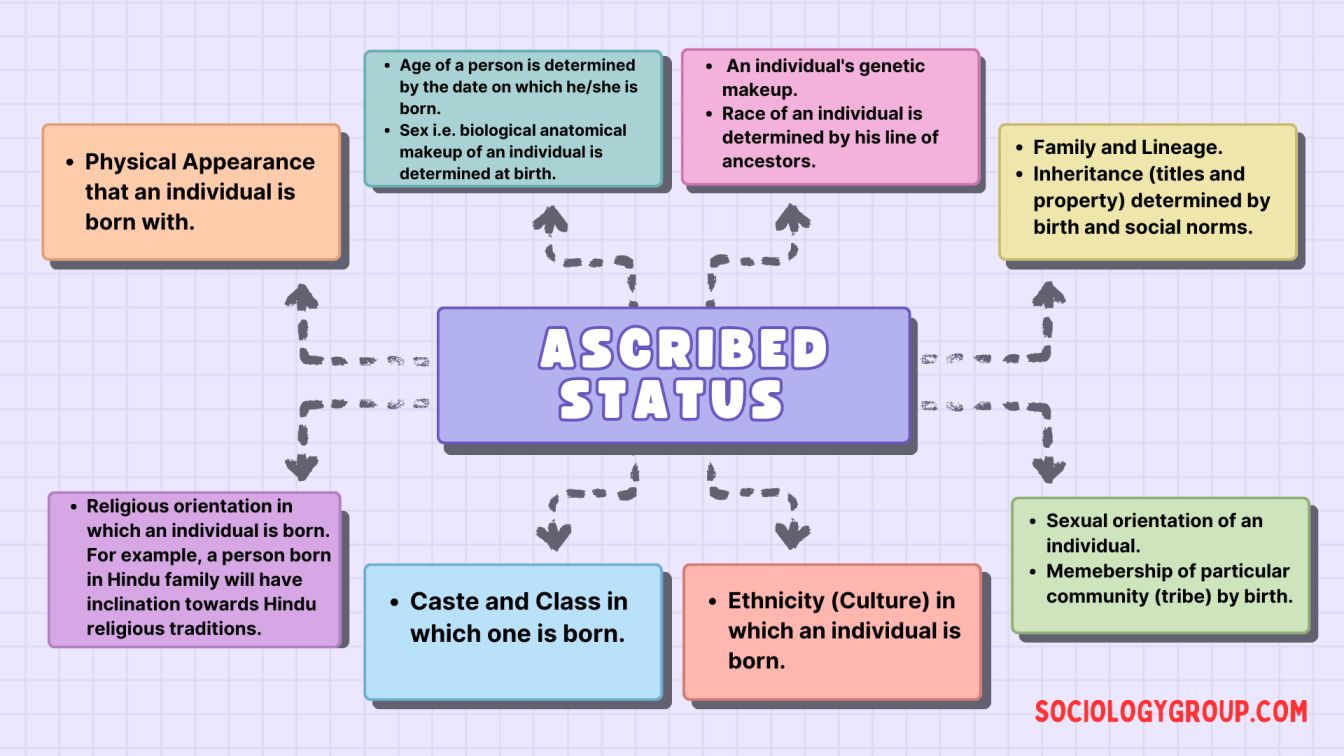
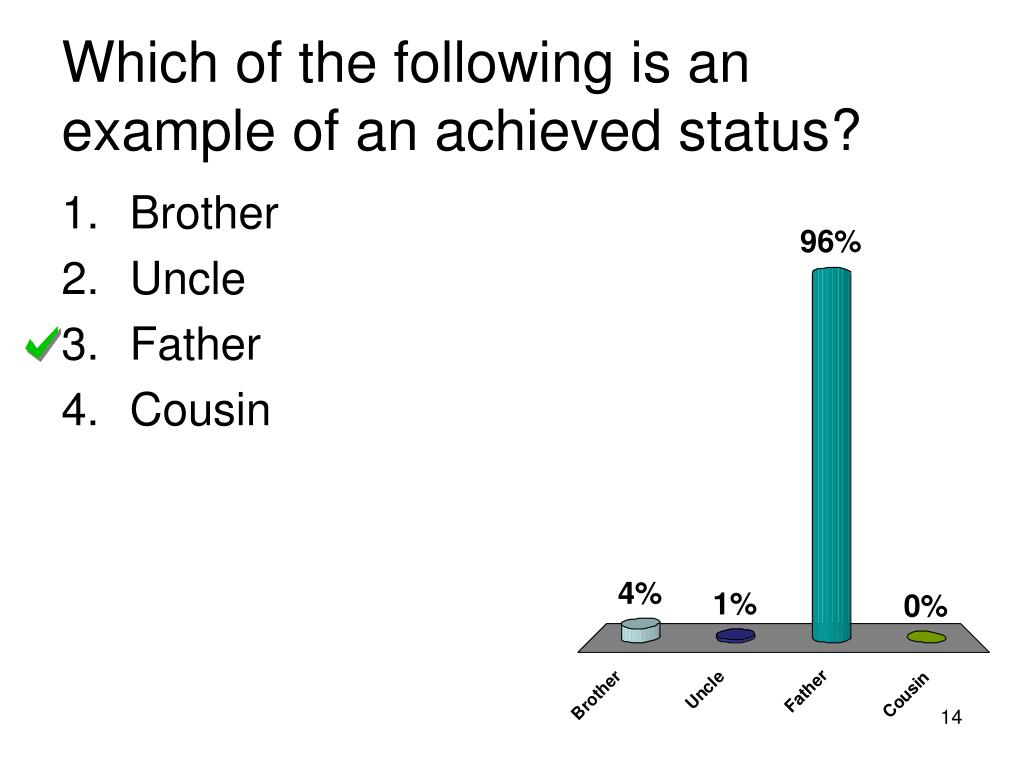
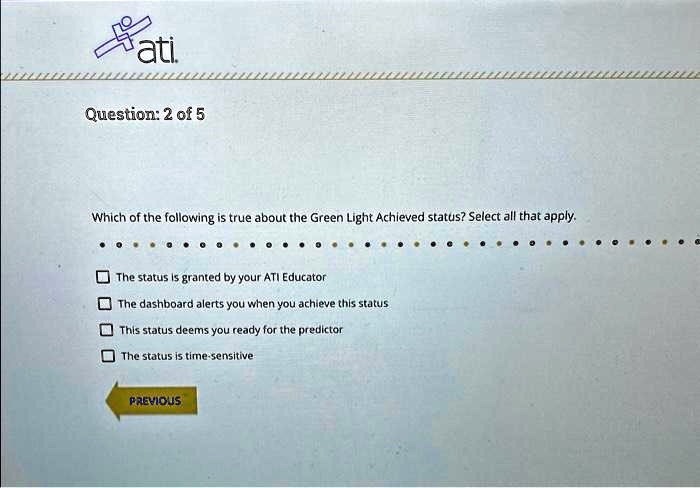
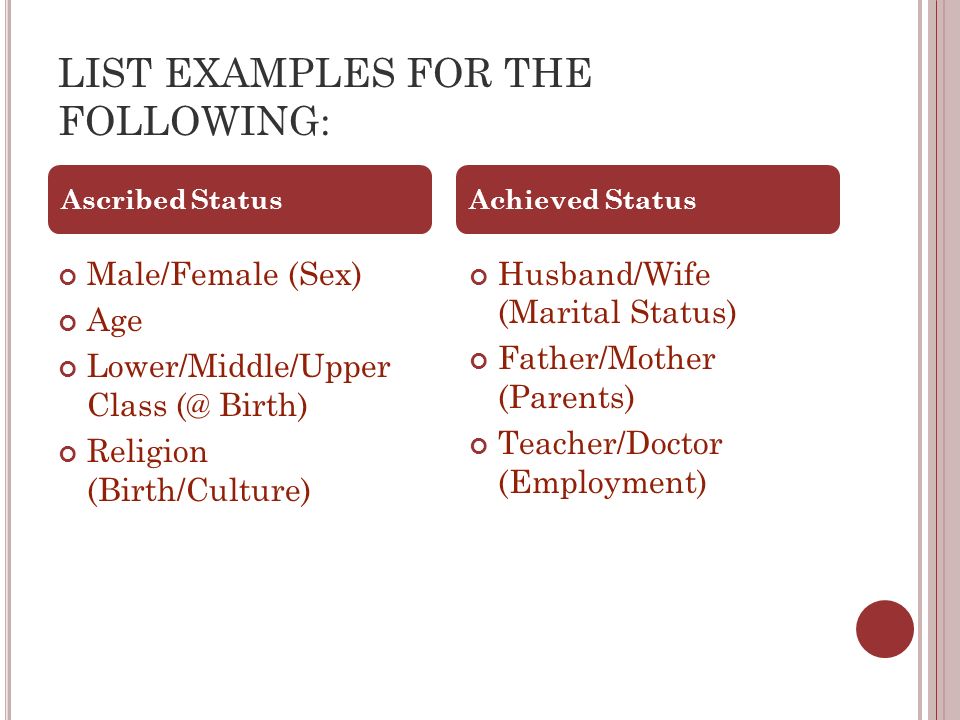

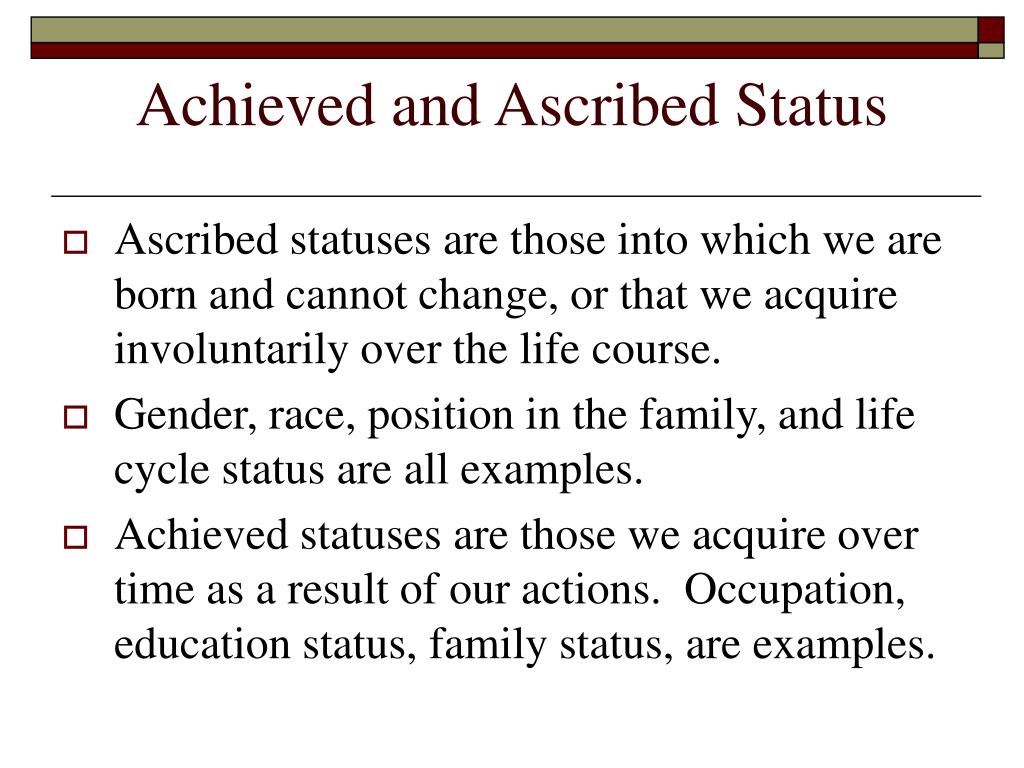



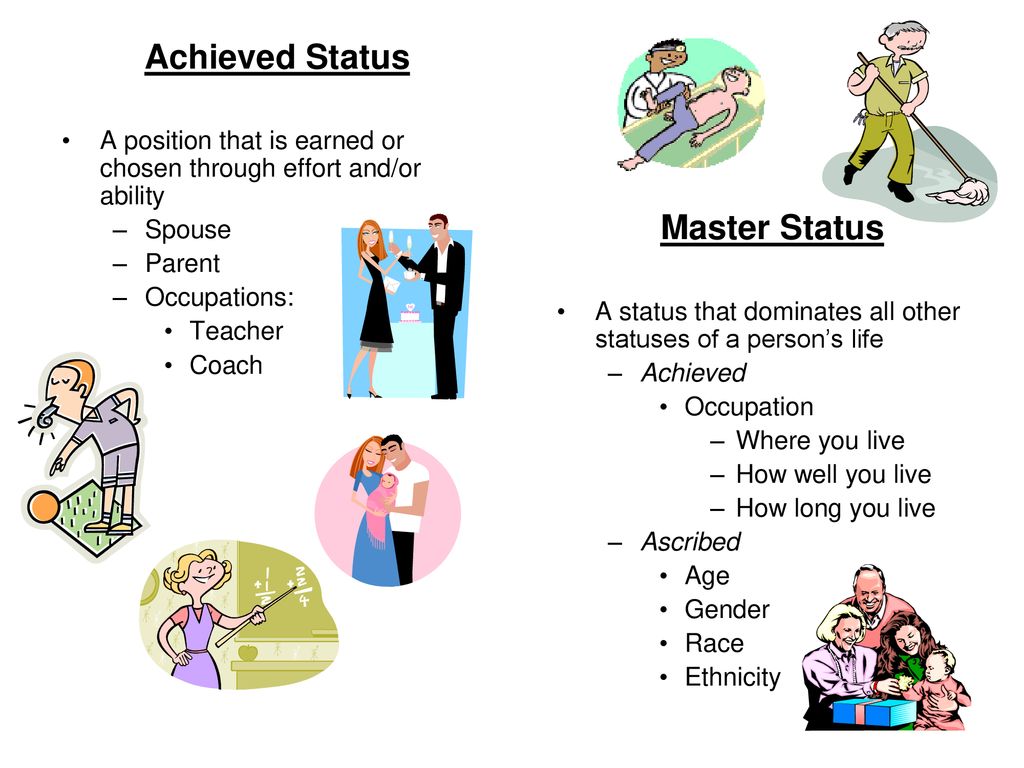



:max_bytes(150000):strip_icc()/achieved-status-vs-ascribed-status-3966719-ADD-FINAl-V2-c26adb2e1c40488b83e58076ffb63ac1.png)

